Comparing WordPress vs. Laravel is complicated because both “platforms” have little in common besides using PHP. However, understanding the differences between both options is essential to determine how to build your next project.
In this post, we will talk about who should use WordPress and Laravel. We’ll discuss customization options, ease of use, security, and more. Let’s get to it!
- 1 WordPress vs. Laravel PHP Framework: Who Are They For?
- 2 WordPress vs. Laravel PHP Framework: Ease of Use
- 3 WordPress vs. Laravel PHP Framework: Customization
- 4 WordPress vs. Laravel PHP Framework: Themes and Templates
- 5 WordPress vs. Laravel PHP Framework: Publishing Tools
- 6 WordPress vs. Laravel PHP Framework: Security
- 7 WordPress vs. Laravel PHP Framework: E-commerce
- 8 WordPress vs Laravel: Picking The Best Option
- 9 WordPress vs Anything Else
- 10 Frequently Asked Questions (FAQs)
WordPress vs. Laravel PHP Framework: Who Are They For?
It’s important to understand that WordPress and Laravel are two very different types of software. However, they’re both “solutions” that you can use to build websites and online applications.
WordPress
WordPress is a Content Management System (CMS) that enables you to build sites using visual tools. You get access to a Block Editor that works similarly to page builder software and a dashboard with options to create and manage content, user accounts, and more:
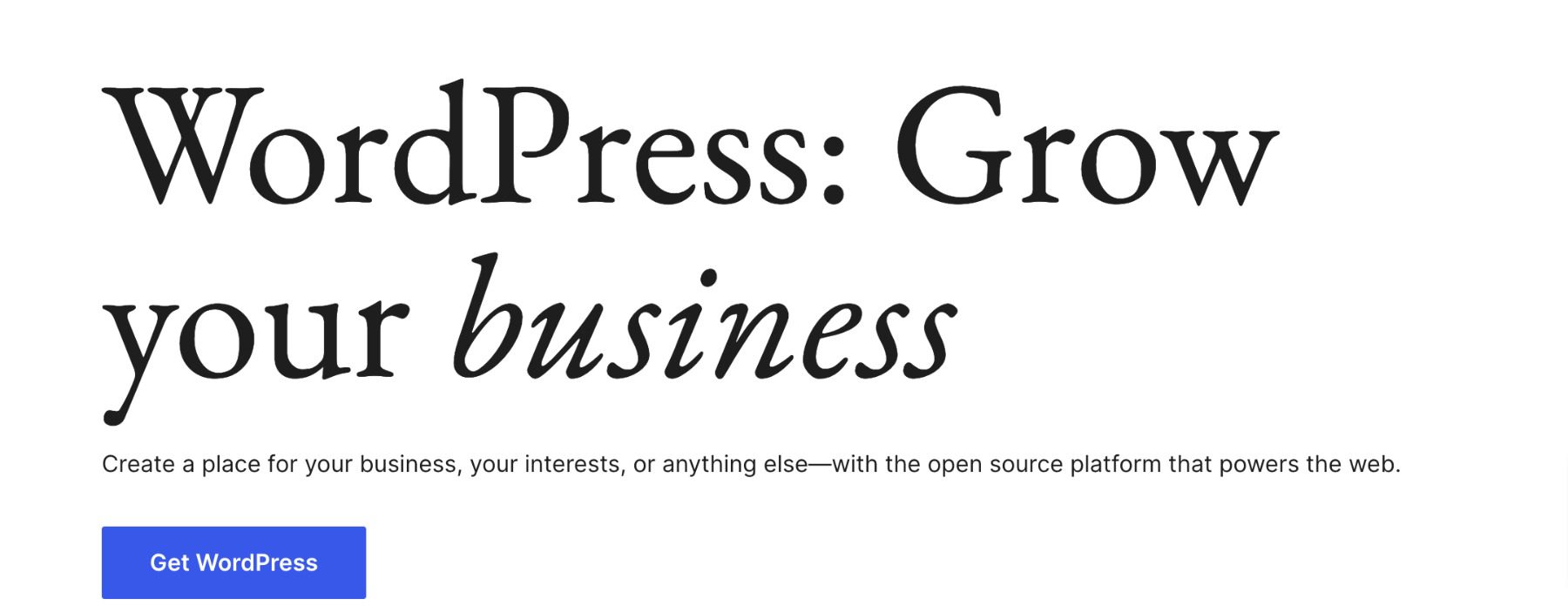
On paper, WordPress is a blogging platform. However, the CMS is incredibly versatile, so much so that 43% of all existing websites use it. Therefore, it’s suitable for everything from eCommerce stores to personal blogs.
If you use the open-source version of WordPress, you’re not even limited to a specific web host. You can set up the CMS on any server that you want.
Laravel
Laravel is not a CMS but a “framework” for the PHP programming language. That’s the same language that’s at the core of WordPress. However, Laravel doesn’t provide visual tools or dashboards to help you create a website:
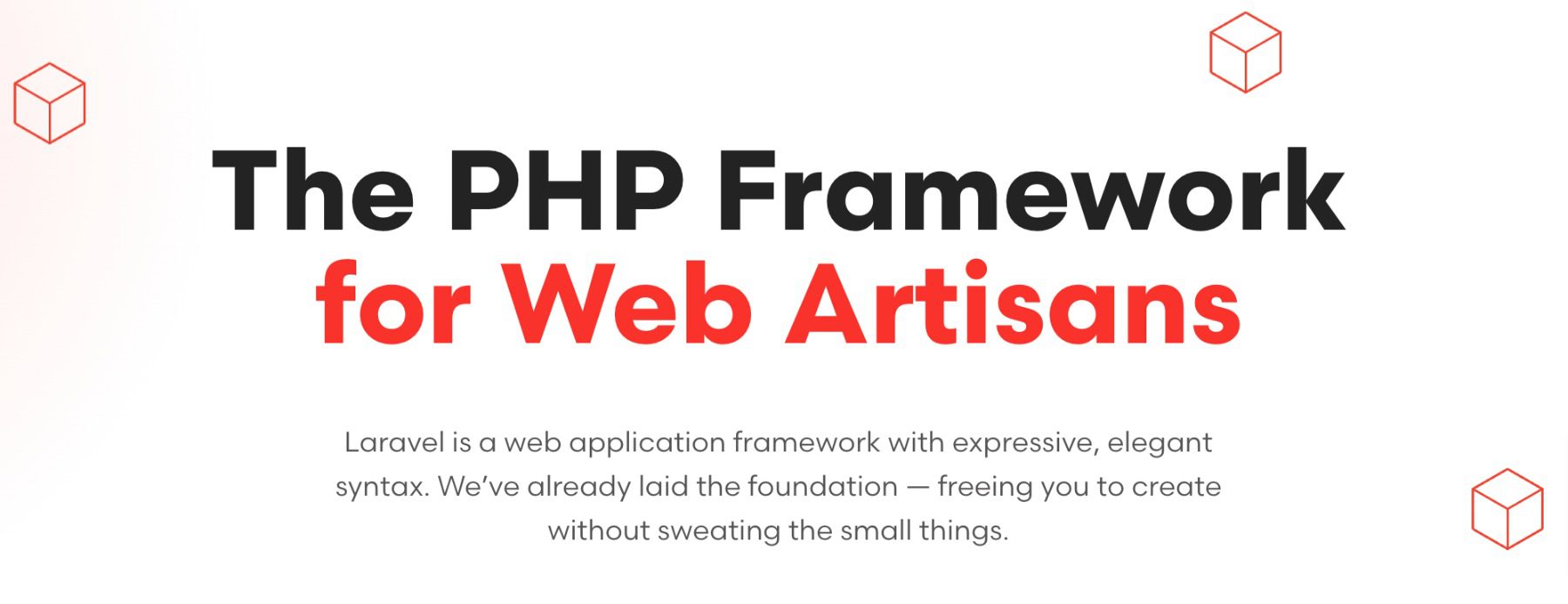
With Laravel, you get a library of pre-programmed features to “put together” a website. That process takes place from a Command Line Interface (CLI) called Artisan.
To use Laravel, you’ll need to know your way around PHP even though you interact with the framework using a scripting language. Although that process may sound complicated, using Laravel can be remarkably straightforward if you have a development background.
Laravel is not a “platform” that you can pick up without programming knowledge. If you have zero background in web development, WordPress is definitely preferable.
However, that’s not to say WordPress is a platform for beginners only. The CMS is incredibly customizable, and you can use it to develop websites with highly complex functionality.
WordPress vs. Laravel PHP Framework: Ease of Use
Although WordPress and Laravel offer such different experiences, we can compare how easy they are to use. Let’s start with WordPress.
WordPress
WordPress is straightforward to learn, even if you have no web development experience. It might take a while to go from zero to having a ready-to-go website. However, you have an amazing wealth of resources and tutorials for the CMS. Combine those resources with an intuitive dashboard, and WordPress is a beginner-friendly option:
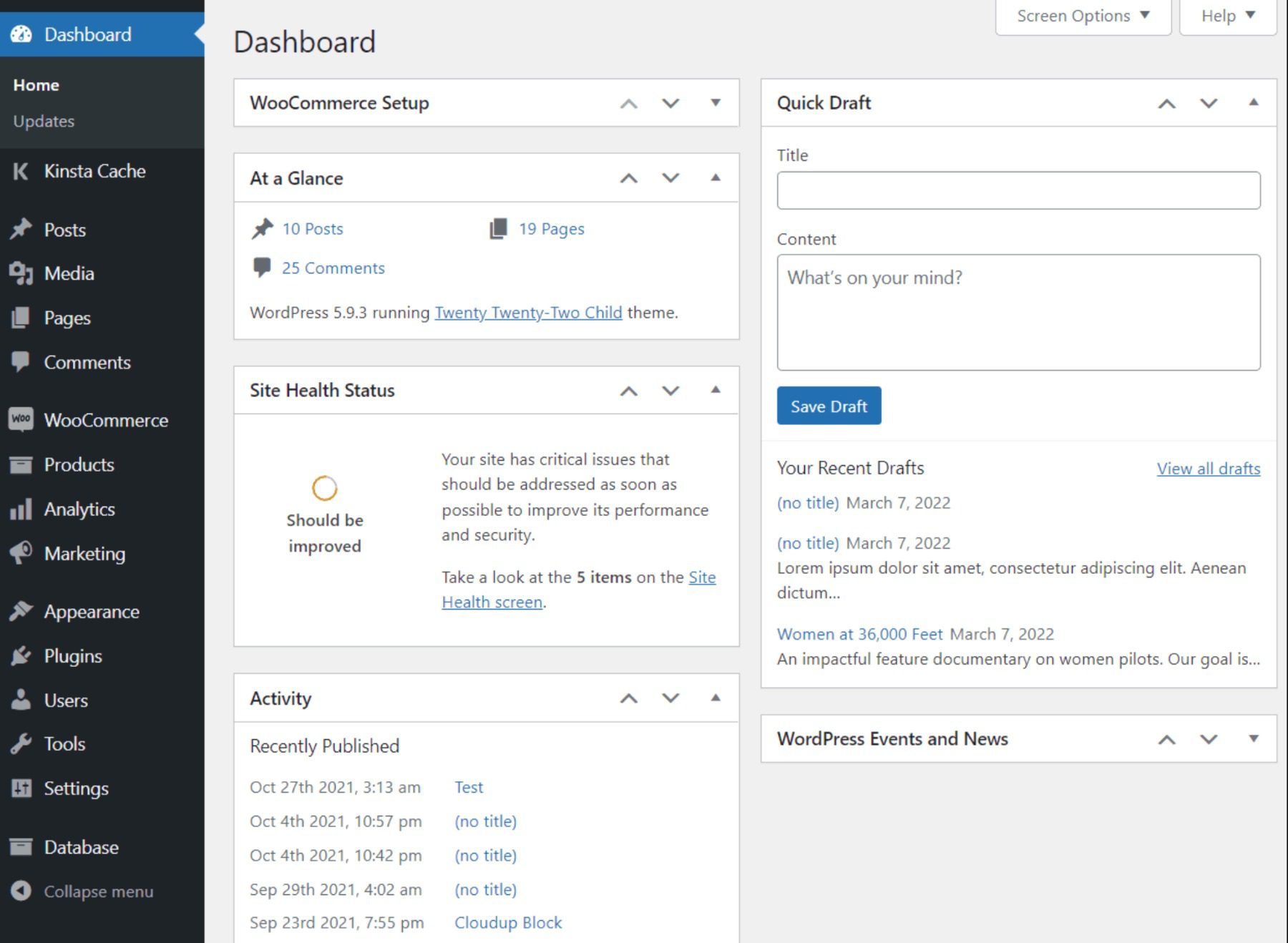
Once you have some experience under your belt using WordPress, you should be able to create new pages and entire websites relatively quickly. You’ll practice using the Block Editor, know which plugins to use in particular situations, and get an idea of which themes to use for different sites.
Laravel
If you don’t have a background in web development or experience using the command line, Laravel might be overwhelming. However, you don’t need to be a master programmer to use Laravel.
Basic knowledge of PHP and CLI functionality should be more than enough to unlock the potential of Laravel:
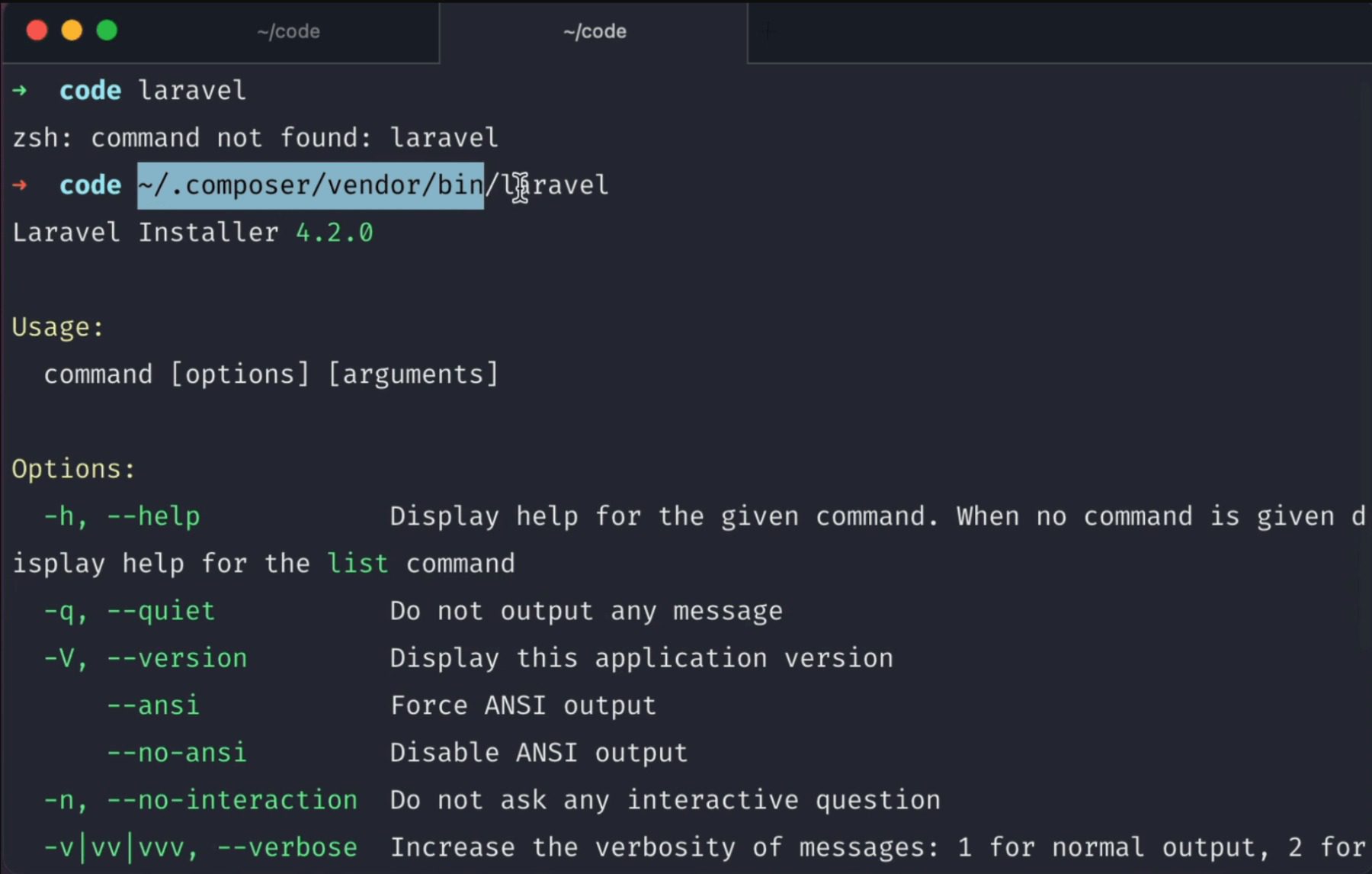
Laravel offers extensive documentation to help you get started. For the best possible experience, we recommend checking out the Laracasts library. The library contains in-depth video tutorials for getting started with Laravel. You’ll also learn how to use some of the many “packages” or pre-built features the framework offers.
If you want an “easy” setup, Laravel offers some “starter kits” that package several features, including scaffolding (the basic structure for any Laravel app that you create). You can use starter kits such as Laravel Jetstream for faster application deployment:
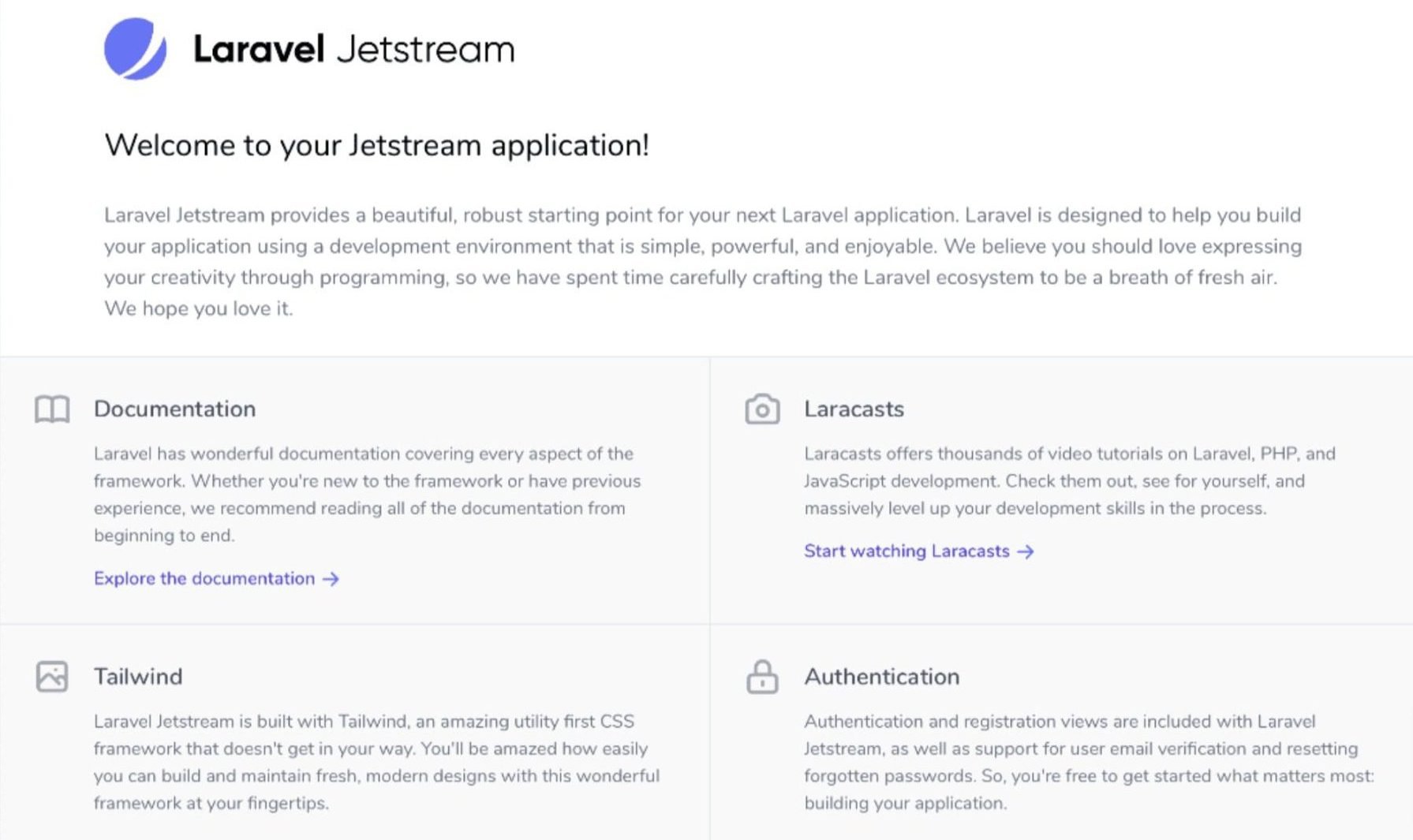
Arguably, the learning curve for Laravel is bigger than with WordPress. However, once again, we’re talking about two options for web projects with entirely different approaches. If you’re comfortable with the command line, you can set up a Laravel project on your server and start publishing pages in minutes.
 |  | ||
|---|---|---|---|
| Ease-of-Use | 🥇 Winner While WordPress does take a second to learn, it is straightforward to get used to and most users will be acclimated within just a few minutes. However, the advanced features will take much longer to master. | If you don't have a background in web development, Laravel can be a lot to take in. However, they do offer video tutorials to help you get you started. | |
| Choose WordPress | Choose Laravel |
WordPress vs. Laravel PHP Framework: Customization
Both Laravel and WordPress offer a wealth of customization options for whatever project you’re working on. Here’s how both of them compare.
WordPress
Most people customize WordPress using plugins and themes. Plugins are add-ons that can add new functionality to the CMS. Fortunately, there are thousands of plugins available to use, and a lot of them are free:
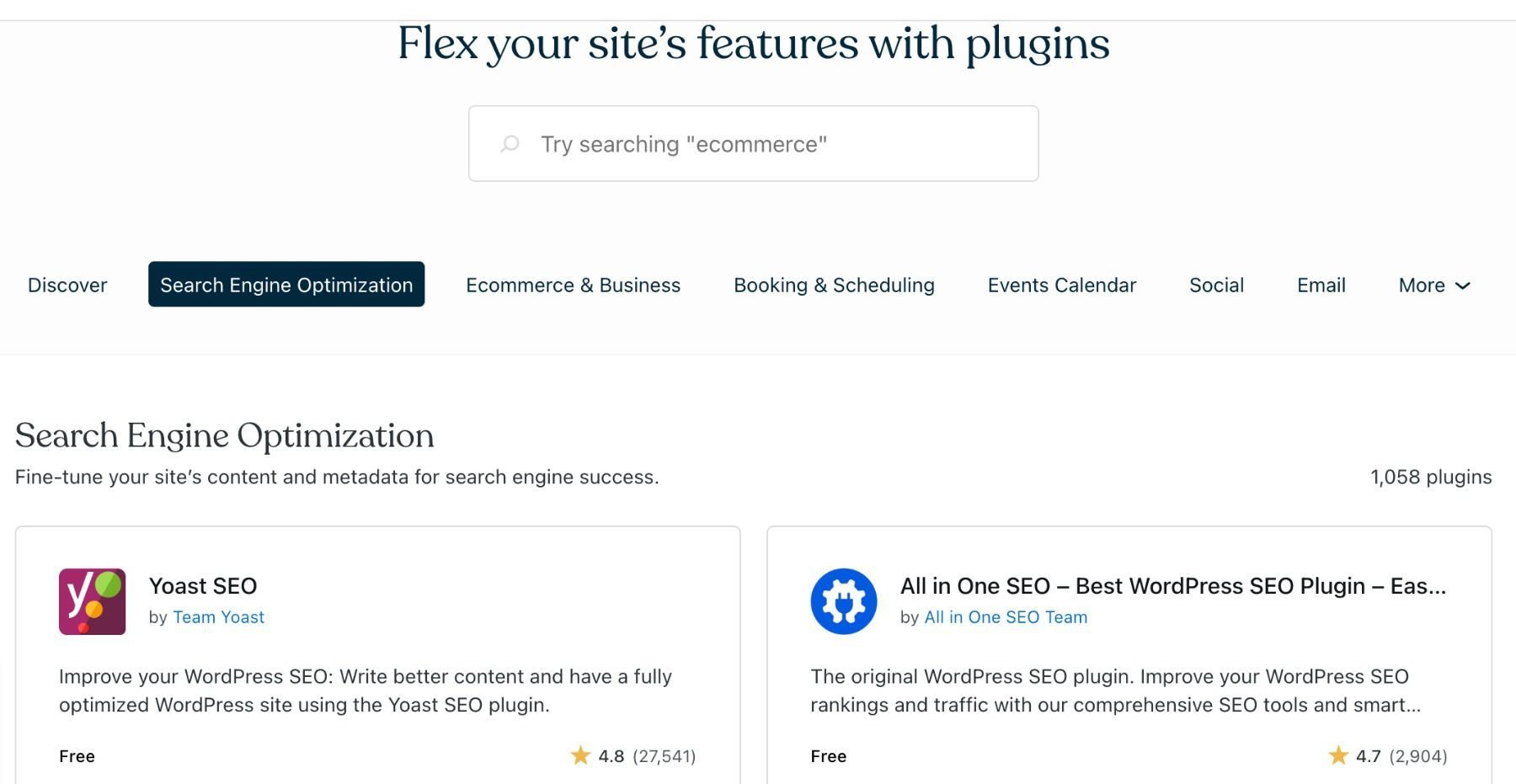
Plugins not only add new features to WordPress but also enable you to change core aspects of how the CMS works. For instance, if you don’t like the default Block Editor, you can replace it with one of the many page builder plugins available, such as Divi or Beaver Builder.
With WordPress, you can develop almost any kind of online project that you can imagine. If you have web development experience, you can also edit the WordPress code and create new plugins and themes. In short, every aspect of WordPress is up for customization.
Laravel
With Laravel, you start every project from scratch, choosing which dependencies and packages you want to use. That means any website built using Laravel only includes features that are manually added:
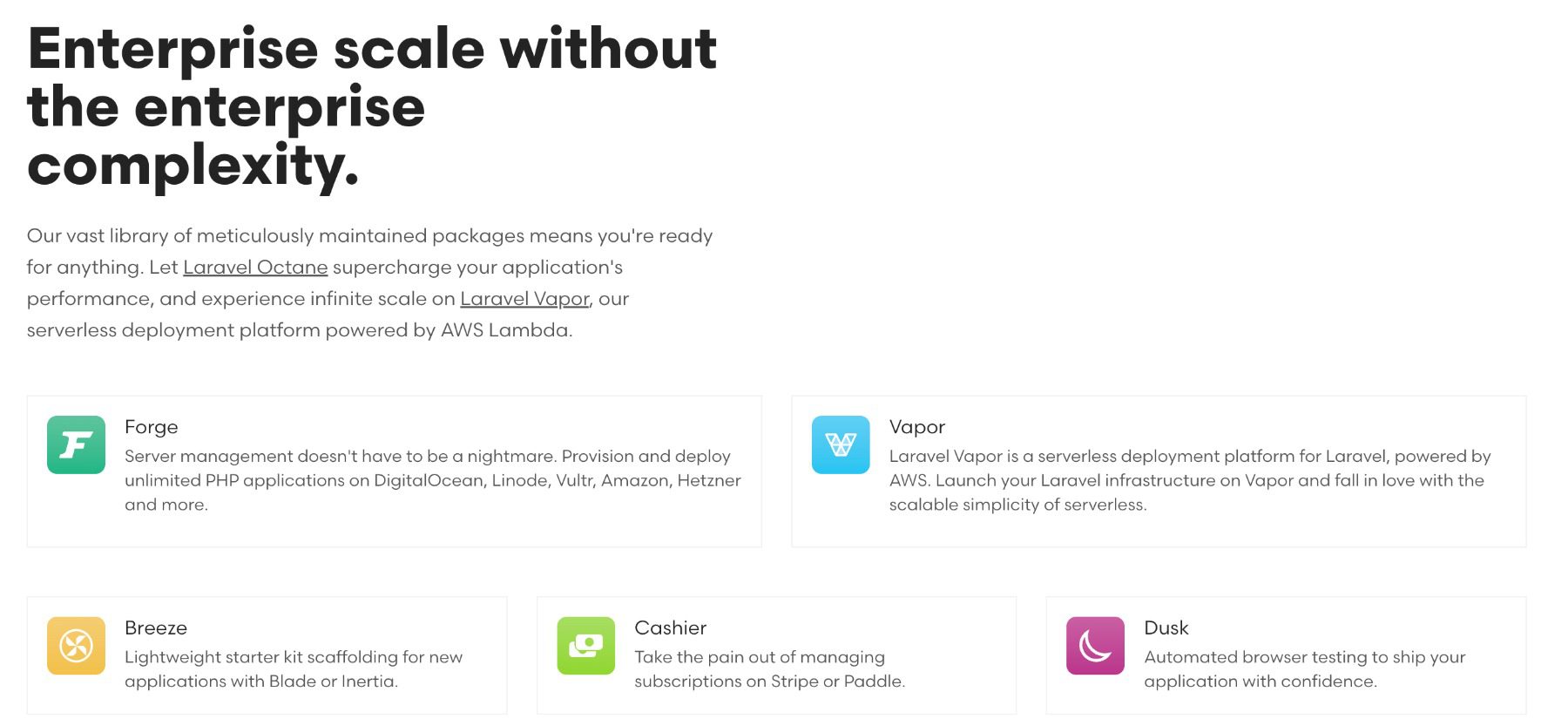
The Laravel model means that every project has a unique set of features. With Laravel, you can add or remove any package since the framework uses a modular system.
Although some packages can add a visual interface for your Laravel website, you should expect to make most edits via the command line. That means you’ll need to understand the Laravel syntax and be comfortable managing a web project via commands.
 |  |
|
|---|---|---|
| Customization | 🥇 Winner With all the thousands of plugins and opportunities for custom coding, WordPress is set up to be the master of customization. | Laravel is designed to be a modular system, with frameworks being hand selected by the user. There is a lot of room for customization, it just takes a lot of know-how. |
| Choose WordPress | Choose Laravel |
WordPress vs. Laravel PHP Framework: Themes and Templates
Many platforms provide themes and templates to customize your website’s style. Themes enable you to quickly try new designs and overhaul your website’s appearance without coding. Here are the differences in how WordPress and Laravel handle theming.
WordPress
As you may know, WordPress offers a massive collection of themes, both free and premium. You can look for and install themes without leaving the dashboard and change options almost instantly:
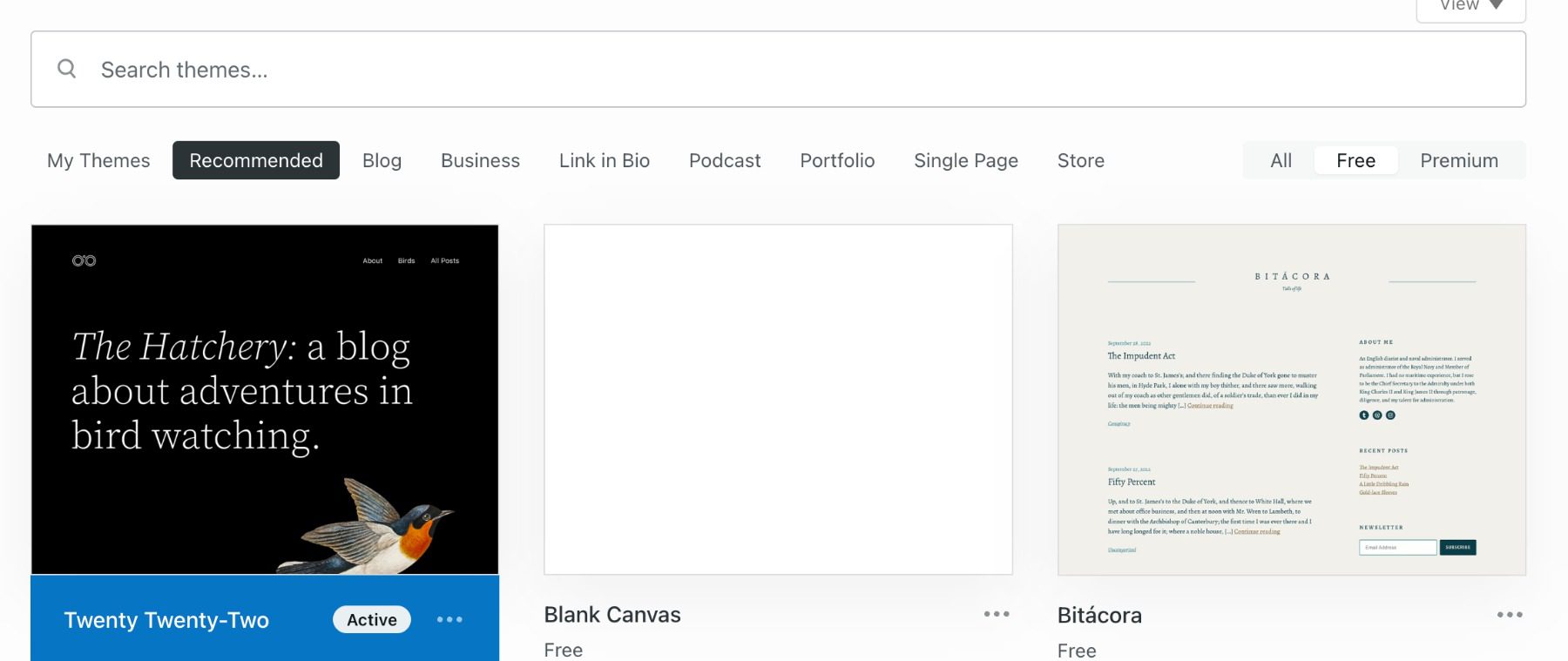
Plus, if you look beyond free options, many premium themes add new functionality to WordPress, such as page builder themes (like Divi). The biggest challenge with themes tends to be settling on an option because there are so many of them.
You can fully customize any aspect of the themes that you use. Moreover, WordPress enables you to edit page templates using the Block Editor.
Laravel
Laravel uses the Blade templating engine by default. It enables you to produce layouts manually, which is more efficient than creating pages from scratch. However, you’ll still need to code every section and element of your Blade templates.
Alternatively, you could use CCS pre-processors and frontend toolkits. One of the most popular options among Laravel users is Bootstrap:
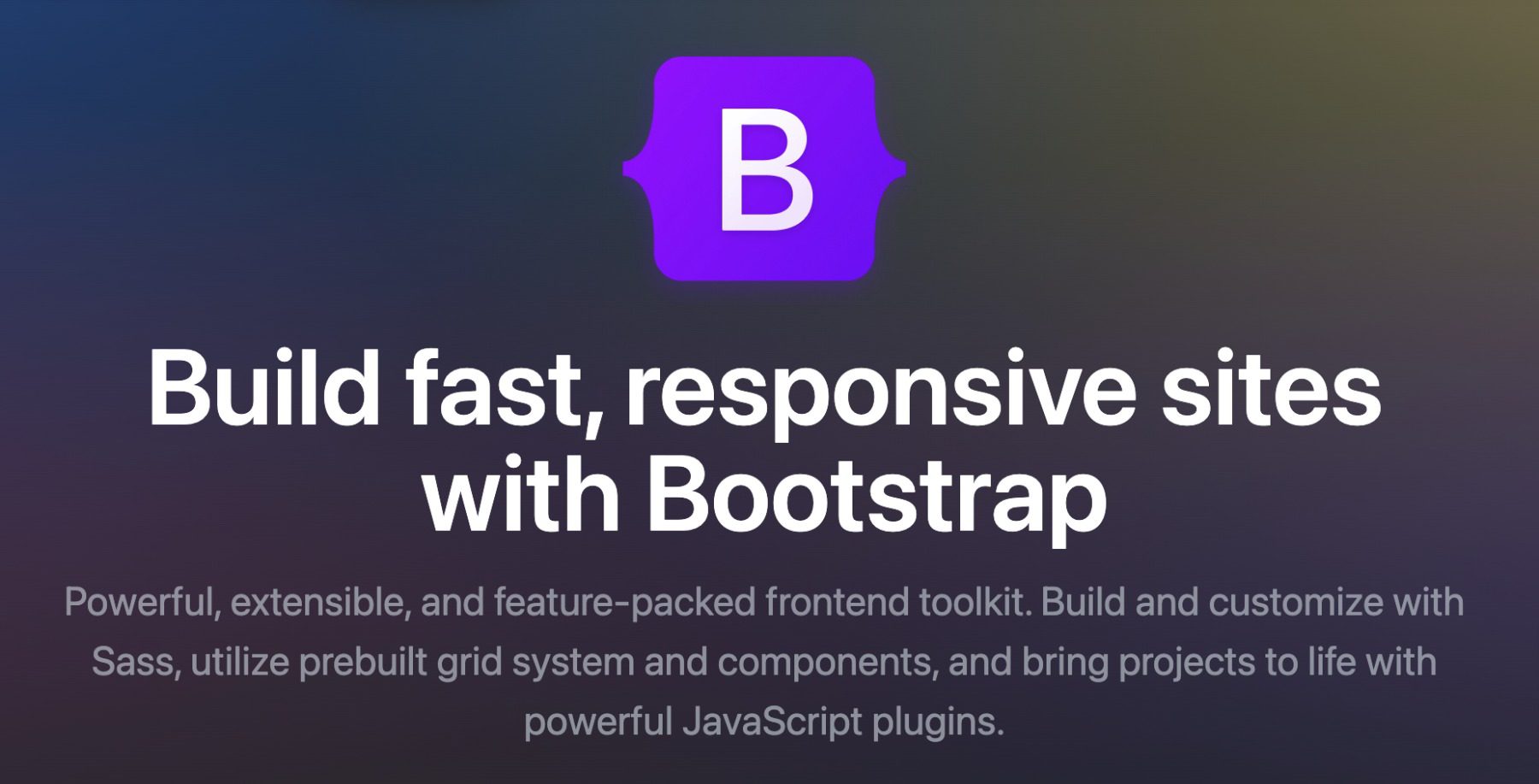
Toolkits such as Bootstrap do support and offer themes. However, these are not specific to Laravel itself but to the pre-processor you’re using.
Although the lack of theming systems might be a con for some, the open-ended approach that Laravel offers is quite appealing. Since you’re working with a framework, you’re free to use any front-end toolkit. Therefore, you can choose from hundreds or thousands of templates if you take the time to set things up.
If you look for Laravel templates, you will find some options for admin dashboards. Keep in mind that Laravel doesn’t come with an admin panel or dashboard. However, you can build one and use Laravel templates to customize its style:
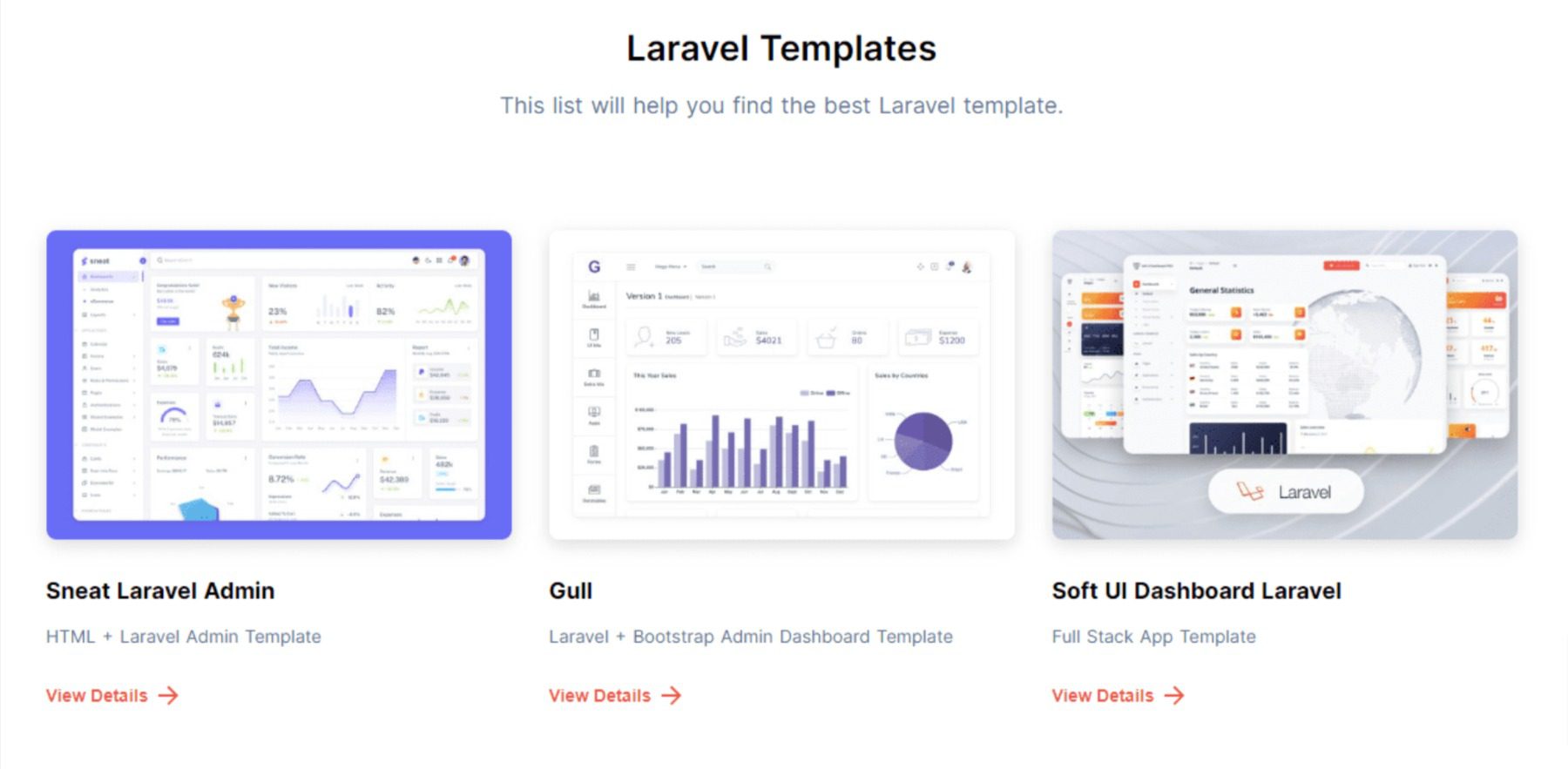
These templates will usually require dependencies and frontend toolkits to work. Additionally, you’ll still need to configure Laravel to work with the template and display data through it (some packages can do this).
 |  |
|
|---|---|---|
| Themes and Templates | 🥇 Winner WordPress offers a huge variety of premium and free themes. | Laravel utilizes the Blade templating engine to produce manual layout, but you can also take advantage of Bootstrap to use hundreds of themes, as long as you take the time to set them up properly. |
| Choose WordPress | Choose Laravel |
WordPress vs. Laravel PHP Framework: Publishing Tools
Although Laravel isn’t a “publishing” platform per se, it can fulfill that role with the right approach. Let’s talk about how WordPress and Laravel compare with publishing tools.
WordPress
Publishing posts and pages are at the core of the WordPress experience. The CMS focuses on providing tools to create pages and blog posts with ease. The Block Editor reflects that with its visual approach to page creation:
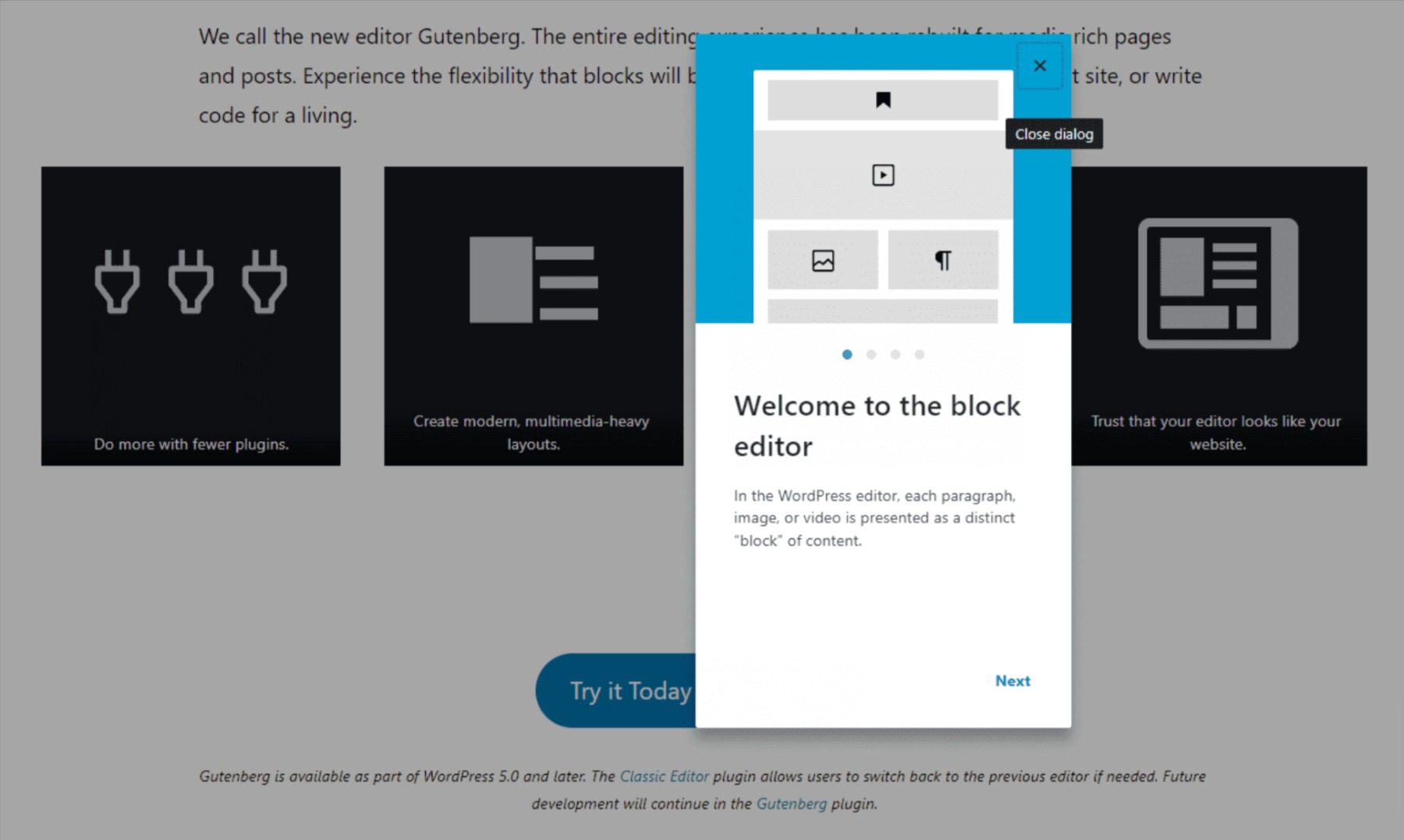
WordPress also offers functionality for managing posts. You can edit, update, and delete posts at any time. Even if you have a massive library of content, WordPress makes it easy to manage it.
Laravel
Laravel doesn’t offer built-in publishing tools. However, you can easily change that using the right packages. Some Laravel packages focus on adding blogging and publishing functionality to the framework.
One such example is Laravel Blog. This package adds a dashboard that looks like WordPress and a classic text editor to publish new posts and pages:
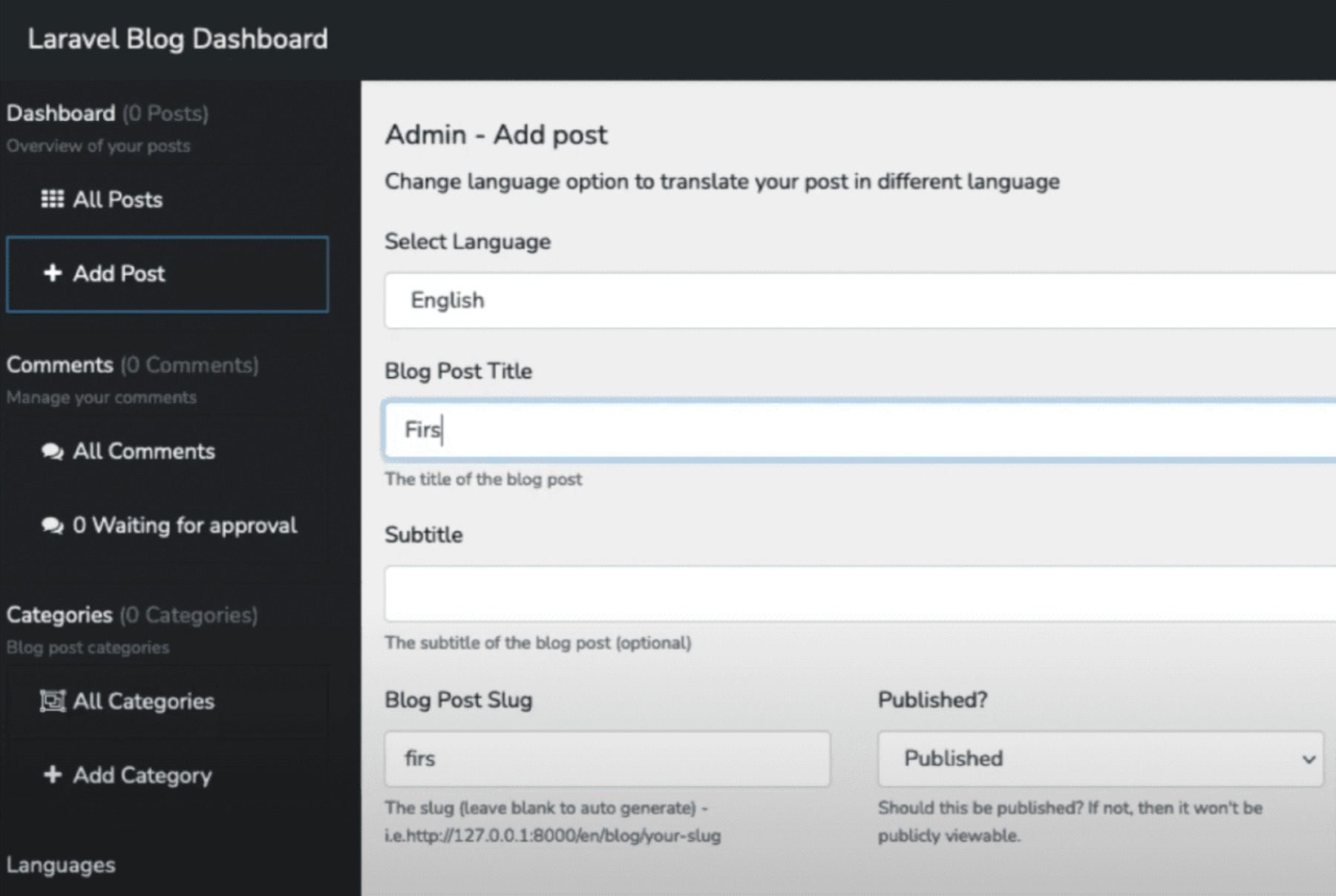
The alternative is to code and publish pages manually. That’s a valid approach, but if you plan on running a blog that publishes content often, you’ll want to use packages to handle the workload more efficiently.
 |  |
|
|---|---|---|
| Publishing Tools | 🥇 Winner WordPress is a very user-friendly platform, making it easy for non-technical users to create and publish content without much technical expertise. It offers a built-in editor with a variety of formatting options and multimedia support. | Laravel is more developer-oriented and requires technical expertise to use effectively. While it doesn't offer a built-in content editor, it can be used to build custom publishing tools that are tailored to specific needs. |
| Choose WordPress | Choose Laravel |
WordPress vs. Laravel PHP Framework: Security
Protecting your website from attacks and securing user data is key to any modern website. Here’s how Laravel and WordPress compare in terms of security.
WordPress
One of the main advantages of using WordPress is that the platform gets regular updates and security patches. If you keep WordPress itself, plus the themes and plugins you use, up to date, your website should be mostly secure. There are security plugins that can help you keep your website safe as well, We’ve listed the best ones here.
Having said that, there are plenty of extra steps that you can take to protect your site even further. Some plugins can help you implement features such as Two Factor Authentication (2FA). Additionally, you can whitelist IP addresses, use web hosts that offer advanced security functionality, and more.
Laravel
Laravel offers many pre-programmed security features that you can implement for your projects. These features are not “enabled” by default, meaning you need to add them manually on a project-by-project basis. They include:
- A user authentication system
- Protection against XSS attacks and SQL injections
- Email verification
- Password hashing and reset functionality
On top of its pre-programmed functionality, Laravel includes packages to enhance security. Arguably, Laravel is much more secure than most other PHP frameworks. However, there’s always more that you can do to protect your site, so it’s essential to be proactive about it.
 |  |
|
|---|---|---|
| Security | WordPress has several security plugins that can be installed to further enhance its security features. However, since it is a widely used platform, it is often targeted by hackers, making it more vulnerable to attacks. | 🥇 Winner Laravel, on the other hand, is a PHP web application framework that is designed to be secure by default. It comes with built-in security features such as CSRF (Cross-Site Request Forgery) protection and secure session management. |
| Choose WordPress | Choose Laravel |
WordPress vs. Laravel PHP Framework: E-commerce
Running an online store is one of the best ways to make money online. This section will help you decide which platform is more suitable.
WordPress
WordPress is a very user-friendly CMS for running an eCommerce store. It comes with a wide variety of eCommerce plugins that can add a great deal of features to your base WordPress install. Using the free WooCommerce plugin, you can create a storefront, upload products, process payments and shipping, and more:

Furthermore, you can use WooCommerce extensions to add extra functionality to your store, such as product filters and customer reviews. You can even build your very own eBay with WooCommerce Simple Auctions, one of many auction plugins available for WordPress. Since you control your shop visually, it’s very easy to organize and sell your products. Not only does WooCommerce come with plugins that make your site function better, but there are also tools to make it perform better online. WooCommerce SEO plugins help your products be found better on search engines, with some of the top ones being free like Yoast and Rank Math.
Plus, you can choose from other free and paid eCommerce plugins, such as Easy Digital Downloads. Overall, WordPress eCommerce is very accessible.
Laravel
As we previously explained, Laravel works with packages. Some Laravel packages can add complex functionality to your projects, such as publishing tools and eCommerce systems.
E-commerce packages like Aimeos and Lunar can help you set up complex online stores:
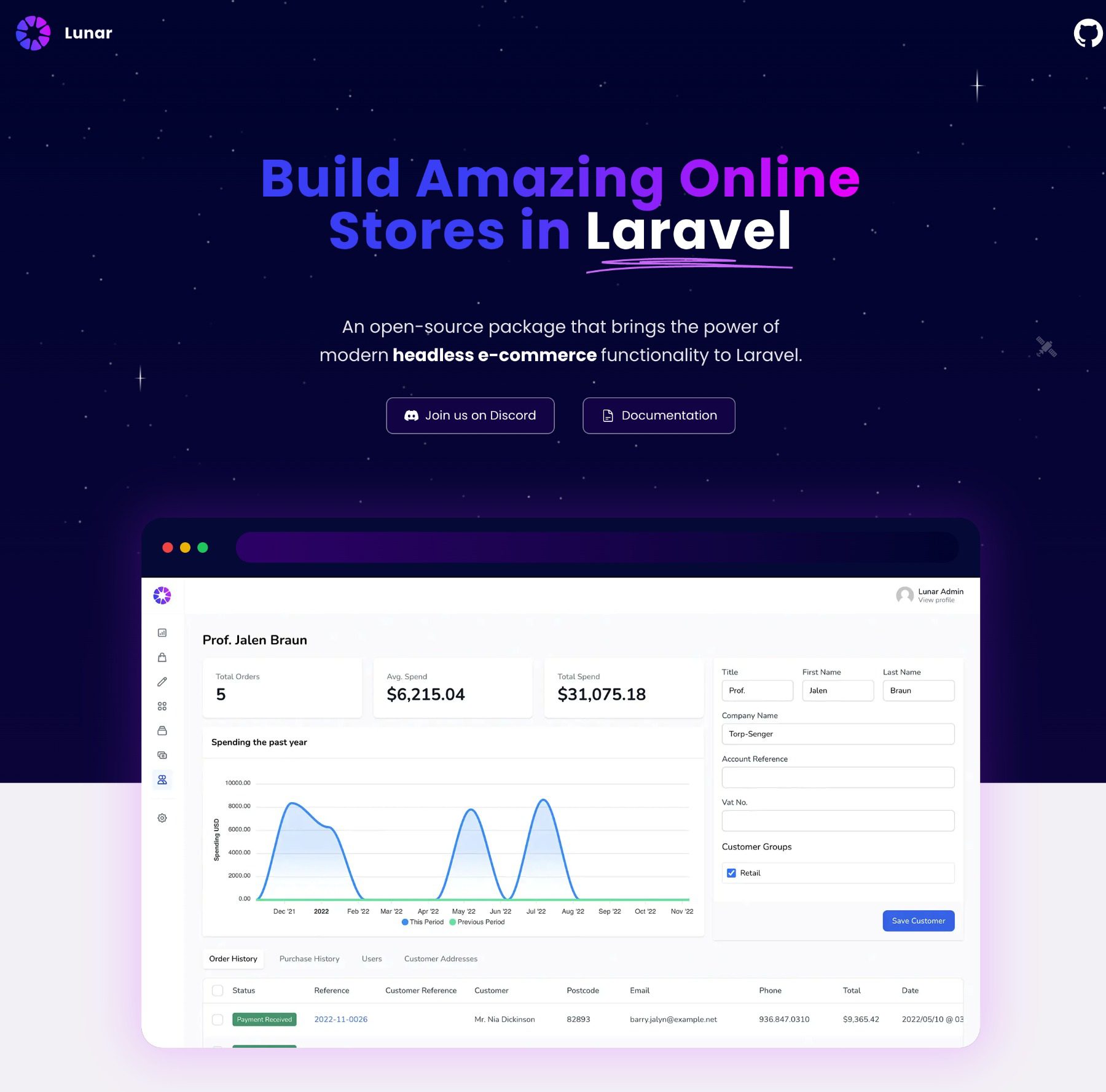
These eCommerce packages give you arguably more freedom than WooCommerce since you can design more complex products, shopping carts, and customer parameters. You’ll also typically get access to an admin hub to manage all your sales. However, as with most Laravel features, you’ll need developer experience to get the most out of eCommerce packages.
 |  |
|
|---|---|---|
| E-commerce | The WooCommerce plugin let's you create an online store with ease, plus it has extensions to add functionality and customize your store to your liking. | 🥇 Winner Laravel provides a solid foundation for building e-commerce websites with a range of features such as authentication, routing, database management, and templating. |
| Choose WordPress | Choose Laravel |
WordPress vs Laravel: Picking The Best Option
Laravel and WordPress offer very distinct approaches to creating a website. With WordPress, you get a CMS that packages visual tools to help you build and manage every aspect of your site. By contrast, Laravel is a PHP framework that requires you to put together projects from scratch using pre-built features and packages.
 |  |
|
|---|---|---|
| Ease-of-Use | 🥇 Winner While WordPress does take a second to learn, most users will be acclimated within just a few minutes. | If you don't have a background in web development, Laravel can be a lot to take in. However, they do offer video tutorials to help you get you started. |
| Customization | 🥇 Winner WordPress is set up to be the master of customization. | There is a lot of room for customization, it just takes a lot of know-how. |
| Themes and Templates | 🥇 Winner WordPress offers a huge variety of premium and free themes. | With Laravel you can use hundreds of themes, as long as you take the time to set them up properly. |
| Publishing Tools | 🥇 Winner WordPress is a designed for bloggers. | Laravel is more developer-oriented. |
| Security | WordPress is a widely used platform, so it's often targeted by hackers, making it more vulnerable to attacks. | 🥇 Winner Laravel comes with built-in security features that are unmatched. |
| E-commerce | The WooCommerce plugin let's you create an online store with ease. | 🥇 Winner Laravel provides a solid foundation for building e-commerce websites with the right extension packages. |
| Choose WordPress | Choose Laravel |
There isn’t a definitively better option for building a website. If you’re an experienced programmer, you’ll probably appreciate Laravel for what it offers – an incredibly scalable and customizable framework that can adapt to your needs. On the other hand, WordPress simply works right out of the box, which can simplify and speed up some projects.
WordPress vs Anything Else
One more thing. Before you make your final decision on your website platform…are you curious to see how WordPress stacks up against its other biggest competitors? We did the hard work and compared WordPress vs. everything else so that you don’t have to! We also reviewed WordPress vs. GitHub Pages, and I think you will be interested to see the results.
If you’re looking for specific plugins to help WordPress become even more powerful, we recommend the following:
Frequently Asked Questions (FAQs)
Before we wrap up, let’s answer some of your most common questions about WordPress and Laravel. Did we miss one? Leave a question below, and we will respond!
Which is better, WordPress or Laravel?
Why should I use WordPress over Laravel?
What are the key differences between WordPress and Laravel?
Can I use Laravel with WordPress?
Is WordPress slower than Laravel?
Is WordPress better for SEO than Laravel?
Is Laravel better than WordPress for eCommerce sites?
Can I migrate a WordPress site to Laravel easily?
Is WordPress more cost-effective than Laravel?
Can I use WordPress plugins with Laravel?
Do you have any questions about using WordPress vs. Laravel? Let’s talk about them in the comments section below!

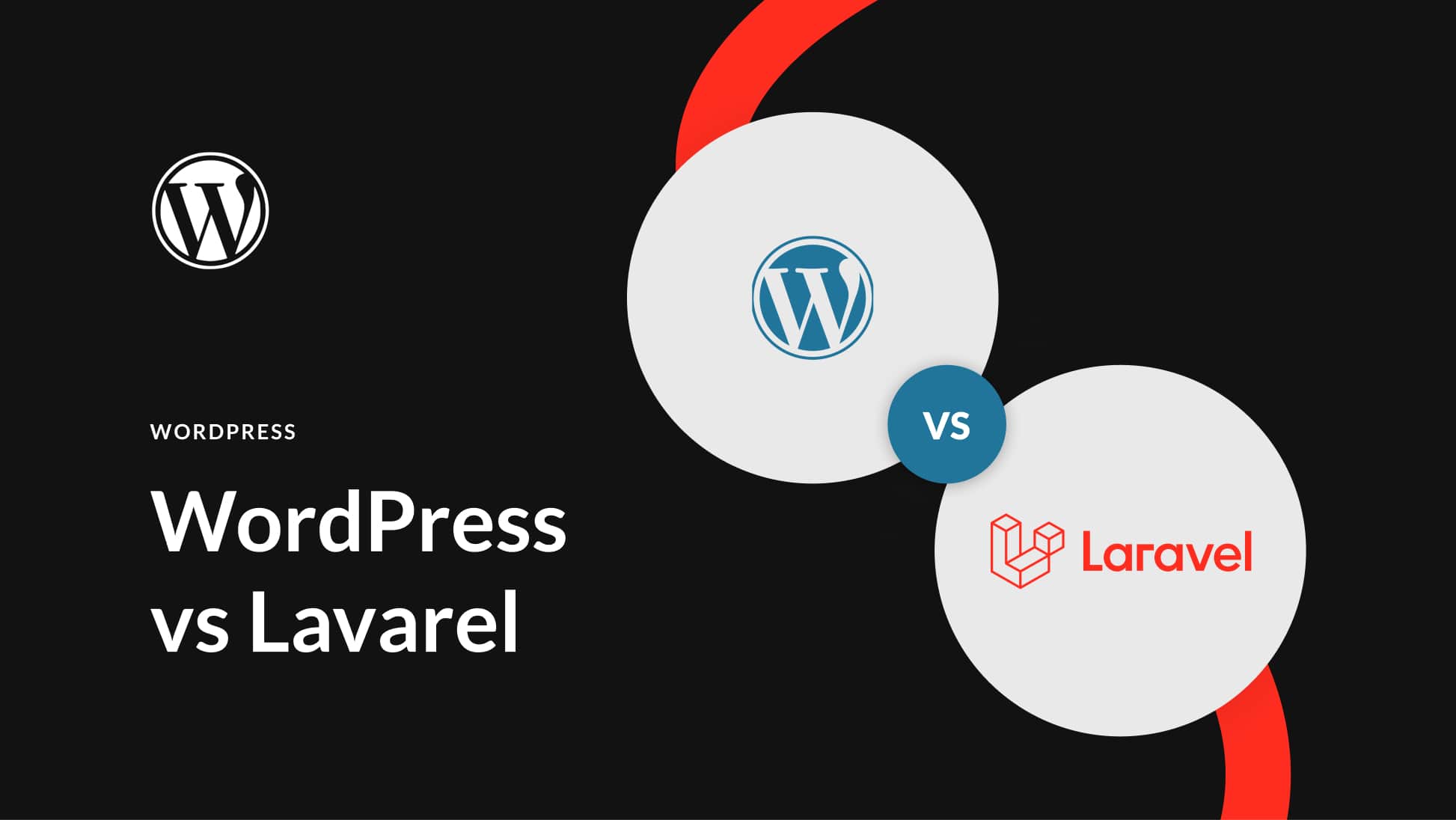







Laravel is special because of its strong community and its ability to handle large applications with ease. It is also very versatile and can be used for a variety of applications. https://www.alakmalak.com/?UTM-andrew-aug/ has helped me multiple times over the years to design my website and can do the same for you for.
Thanks for sharing. This is a Wonderful post!. Explained it in such a simple and beautiful way.
Laravel is an open-source PHP web application framework that mainly focuses on the needs of web developers and the information mentioned above is very used full forever which gives some different ways to teach.
You’re welcome, Angelia!
I am a full stack developer I began my coding back in 2015 using core php, in 2016 I learned WordPress but quickly abandoned it for Laravel 5 in same year. I really felt in love with The PHP framework for web artisans. After growing up with the framework until 2020 when Laravel 7.* Was realized, I embarked on WordPress again, I have a very strong knowledge of both systems and for me WordPress is suitable for quick light apps like blogging. But for complex tailored applications, I is more easier to develop using Laravel.
Thanks for sharing your thoughts with us, Felix 🙂
Thanks so much for the great information. Is there any divi templates that can be used in Laravel?
Divi is a WordPress theme, so its templates can only be used on the WordPress platform.
The Laravel PHP Framework is too complex for me. I have been in the fields of web development and WordPress since the year 2016. I fell in love with WordPress from the very first time. However, I tried other CMS and languages in between. But, no one could replace WordPress for me. WordPress is the best.
Thanks for your comment, Piyush 🙂
You guys should seriously stop writing nonsense like this.
It’s like comparing an Ant to an Elephant.
it’s also like comparing a Construction Company with thousands of workers and equipment ready to build a skyscrapers VS a man with a drill that would build a skyscraper alone.
this is just plain stupidity.
how can WordPress build, an Accounting Application?????
Laravel is comes under php framework and information mentioned above is very use full for ever which gives some different way taught.
Instead of comparing both great applications, why don´t you focused in finding the way to make them collaboratives and associatives to archive better understanding and mayor case of use. Since years now, iǘe been talking to unified both proyect in one. But nothing has append.
Laravel is a PHP-powered framework for creating CMSs such as WordPress, APIs, and full-stack projects. How can a brick be compared to a house? I built a Laravel app to power my Next.JS web app + mobile app, and a Divi + WordPress site for pages and blog articles. Laravel is a PHP framework; I don’t believe there is any way to compare it to WordPress.
Anyone can use Laravel to create a WordPress-like blog.
I use both Laravel and WordPress on a regular basis, but comparing the two is simply impossible.